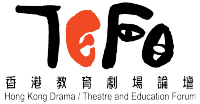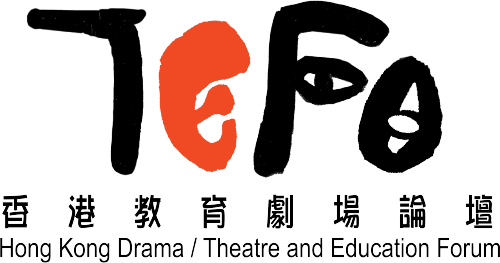Tag: University
Japanese Students Re-engaging in English through Dramatised Digital Storytelling|DaTEAsia Vol. 8
Through the deconstruction of a collaboratively constructed srudent-devised dramatised digital story, this article examines how a group of Japanese university students engaged in their English language learning in a meaningful and creative way. The digital story was an outcome of a three-week intensive elective that drew on process drama and digital storytelling to foster and develop srudents' applications of English language. The article provides the contextual background and the authors' research of the intensive course. Later, a detailed description of the digital story with analysis through a multimodal framework will be discussed thoroughly.
A Refective Case Study On Efective English Speaking Through Process Drama|DaTEAsia Vol. 7
Based on a single case study of a workshop adapted from the novel The Moon and Sixpence, this article explores the application of process drama in one English-as-a-Second-Language (ESL) class in a Chinese university. It is to examine the impact of drama on efective English speaking within the research context. The author reviews writings on socio-semiotic constructivism pertaining to drama and language acquisition, and writings that promote process drama as an alternative option for ESL classrooms.
The Praxes and Challenges in Cultivating Applied Theatre Practitioners in Taiwan: Using the Creative Applied Drama Practicum Curriculum as an Example | DaTEAsia Vol. 6
This article discusses the rationales behind the design and implementation of the creative applied drama practicum curriculum in the Department of Drama Creation and Application (DDCA) at National University of Tainan (NUTN) as a case of nurturing applied theatre practitioners. It examines what effects and impacts students’ practicum in the form of community practices have on both the students themselves and the communities involved. The paper also analyses how the political economy and the culture of Taiwan interplays with the development of applied drama. It draws extensively from notions of ethics of care, relational aesthetics, dialogical creative theories and service learning to investigate how the design and implementation of the course has put theories into practice. Through the sharing of the curriculum practices, the paper attempts to invite and inspire more creative applied drama practices in Asia and around the globe.
Action Therapy – Application of Psychodrama in Teaching Counselling in Hong Kong Tertiary Education |DaTEAsia Vol. 3
Action Therapy originates from psychodrama. This paper describes the use of Action Therapy in counselling education for Bachelor and Master degree students of Social work and Counselling. It aims to analyze the effects of such teaching model through qualitative research and textual analysis. The results show that Action Therapy can enhance students’ problem-solving skills, reshaping irrational beliefs, reconstructing thinking and behaviourial patterns, re-examining the meaning of life, as well as developing an action plan. The paper concludes that the use of Action Therapy in professional counselling and education inspires the students to adopt a positive outlook for their future.
Theatre Production as a Language Learning Environment for Chinese Students|DaTEAsia Vol. 2
Research has shown that theatre can be used as a tool for English as a second language (ESL) learning in various contexts. However, ESL studies done in Hong Kong have shown that sociocultural factors impact on language learning. I argue that this implies that sociocultural factors could also have a significant impact on language learning in the context of the process of rehearsal for a theatre production. This paper reports the results of a pilot study on Chinese tertiary students involved in preparing a theatre production. Adopting a Vygotskian sociocultural perspective, the study draws on analysis of qualitative data. It aims to answer two research questions: (1) What sociocultural factors shape the experience of English theatre productions in Hong Kong as a language learning environment?; and (2) Are theatre productions good language learning environments in Hong Kong? The results revealed that prior to production, students’ sociocultural background were similar to what other studies have already concluded. This sociocultural background has had an impact on the learning environment in that students were predisposed to explicit instruction in the environment as learning outcomes of the experience. These indicate that theatre productions provided students with multiple learning opportunities, which makes it an appropriate language learning environment.




